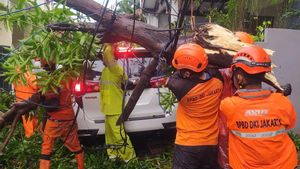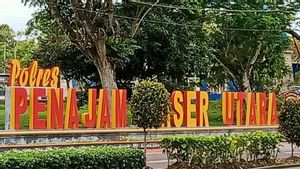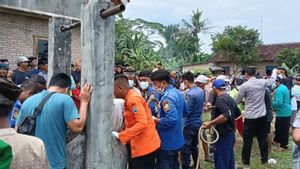YOGYAKARTA - Have you ever heard of state land, or have you ever dealt with state land? So, what is state land?
Launching from Article 1 number (2) and Article 2 paragraph (3) of Government Regulation Number 18 of 2021 concerning Management Rights, Land Rights, Flats Unit, and Land Registration, namely land that is not attached to land rights, not waqf land, not customary land and/or not is state property/state property. The land listed in the qualifications of state land is: land inaugurated by law or government stipulation, land reclamation, land arises, land originating from the release/handover of rights, land originating from the release of forest areas, abandoned land, land, land that ended its term and did not request extension as well/or update, land rights whose term ends because the central government's policies cannot be extended as well as land originally unified as state land.
Two Types Of Land Controlled By The State
The claim or the term state land is actually the right thing. However, what needs to be known is that the meaning is that the state does not own land, but the state controls land.
"The country does not own land, the country is the highest power organization so it does not own land but the state controls land, not owns it," explained Erwin Kallo, last Thursday (12/5/2016).
At least 2 types of state land, namely free state land and non-free state land.
"The land of a free country is a state land that has not had time to have rights on it, such as land in forests, mountains, and so on," said Erwin.
In other words, free state land is land that does not yet have status. Meanwhile, state land is not free, according to Erwin, is a state land that once had rights on it.
"For example, there are building rights (HGB) or other rights and when the time period is not extended, the state will automatically return to control," he added.
Erwin further explained that this non-free state land is regulated in regulations that the state can redistribute the land rights to so-called priority rights. The priority rights mean that the state will prioritize the granting of land rights to previous rights holders.
"If the previous owner did not apply for ownership again, then he will control physically or use it in good faith," said Erwin.
Rights To Land According To Agrarian Law
Of course, Indonesia already has a national law that regulates land. It is the Agrarian Basic Law (UUPA) for more than 55 years.
There are many land provisions in Indonesia that definitely include various rights to land.
Article 16 Paragraph(1) of the UUPA states that if there are rights to land, among others: property rights; rights to use; rights to use; rights to open land; as well as rights to collect forest products. Not only that, it is also recognized other rights that are regulated in other regulations and other rights that have temporary nature.
Property rights contain the right to do or use the land sector concerned for any benefit. The existing relationship is not only ownership, but is psychological-emotional. The property rights are only intended for Indonesians. Only land has the right to property that can be donated. This right is the strongest and full model of land rights.
The right to use business is the right to directly seek land controlled by the state for agricultural, fishery, or livestock businesses.
Business rights can be obtained by individuals in Indonesia or Indonesian companies. The term of right to use business is 25 years for individuals and 35 years for companies. This time can be extended for a period of 25 years.
The right to building is the right to establish and have buildings on land that do not own for a very long period of 30 years and can be extended for very long 20 years. Building rights can be obtained by Indonesian individuals or Indonesian legal entities. Building rights can be placed on state land or land rights.
The right to use and/or collect the proceeds from land controlled directly by the state or belonging to others. However, this right does not appear because of the lease agreement or land processing agreement. Both Indonesian citizens and foreign nationals can have the right to use it. Likewise, Indonesian legal entities and foreign legal entities.
The right to open land and the right to collect forest products is the right to use the resources in the forest concerned without the forest belongs to the rights recipient.
So after knowing what state land is, look at other interesting news on VOI, it's time to revolutionize news!
The English, Chinese, Japanese, Arabic, and French versions are automatically generated by the AI. So there may still be inaccuracies in translating, please always see Indonesian as our main language. (system supported by DigitalSiber.id)













